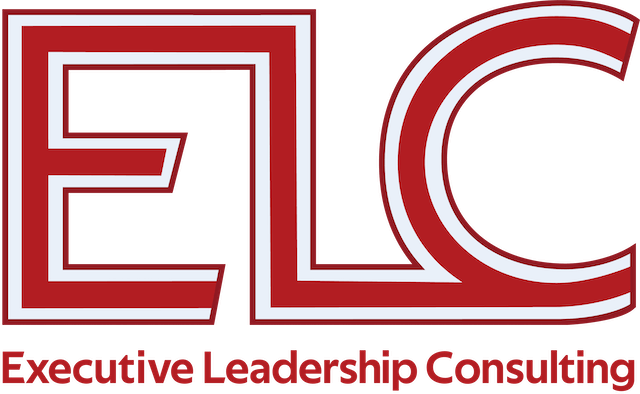In business, there are a lot of different moving parts. As the owner or leader of a company, it’s your job to make sure that all of those parts are working harmoniously to achieve the objective: growth.
Scaling a business is how you achieve that growth. It’s how you take your company from small and local to big and global. But how do you do it? What are the most important stages to scaling a business successfully?
The first step to traversing the path of scaling your business is understanding what it means. In elementary terms, growing and scaling your business may seem synonymous but they differ greatly.
What Does Scaling Your Business Mean?
Scaling your business may seem like the new buzzword in business strategy. However, it’s a process that’s been around for quite some time.
In its simplest form, scaling your business means growing your revenues and increasing profits at the same time. This means adding customers or clients in the most efficient way possible to grow both revenue and profit.
The goal of scaling is to make your business more efficient and productive to handle a higher volume of work without compromising on quality, service, or expenses.
Differences Between Scaling and Growing a Business
As we said, scaling is not the same as growing your business. Growing your business simply refers to increasing your company’s revenue. Whether that’s through selling more products or services, raising prices, or finding new markets to tap into, the end goal is always improved revenue.
Scaling your business, on the other hand, is how you increase your company’s profits by increasing revenue and minimizing expenses. In other words, it’s how you make your business more efficient to handle more work without incurring additional costs.
For instance, with an ROI of $36 for every $1 spent, you can use email marketing to scale your business by reaching more people with less effort. Or, you can use automation to scale your business by reducing the need for manual labor.
The two concepts are often confused because they both aim to increase the size of your company. But while growing your business is about increasing sales at any cost, scaling your business is about increasing profits.
What You Need To Understand To Scale Your Business Effectively
Now that you know the difference between scaling and growing your business, it’s time to take a closer look at how you can scale your business effectively.
Focus
Depending on the stage of your company, you may need to focus on different aspects to scale effectively.
For instance, if your company is in its early growth stages, you may need to focus on building systems and processes that will streamline operations. In addition to onboarding as many customers or clients as possible, increasing revenue should be your top priority at this stage, and for the first few years, this growth strategy may be sustainable.
If your company is further along in its growth journey, you may need to focus on scaling rather than only focusing on increasing revenue. At this stage, you’ll zone in on becoming a force of nature in your market. Whether with your inconceivable marketing strategies or the quality of product or service, you’ll prioritize creating a niche market for your company.
Number of Employees
Likewise, the stage of your company will also affect your workforce. In the earliest stages, you’ll likely be running your business alone or with a handful of employees.
But as your company grows and expands, you’ll need to hire additional employees so that you can handle more tasks. Also, during this growth stage, there is a direct correlation between the number of employees and how many tasks you can accomplish.
Since you have already amassed enough staff during the growth stage, investing in the right talent with the necessary expertise would be the priority during the scaling stage. Not only will you have to lead a growing team but also have to inspire and motivate them to tackle any challenge they may face.
This is where Executive Leadership Consulting comes in. Not only can executive consultants help you understand how to identify and hire the right people, but they can also provide you with the necessary support to ensure your business is scaling effectively.
When Is The Right Time To Scale Your Business?
Scaling your business is a big step, so it’s important to make sure you time it right. With 74% of startups failing due to premature scaling, the most successful companies are those that take the time to plan and prepare before scaling.
Here are three key indicators that your business is ready to scale:
- Your customer base is growing quickly, and you need more resources to keep up. Since customers are the lifeblood of your business, it’s important to make sure you can accommodate their needs.
- Workload is increasing and your team is strained. If you find that the demand for your product or service is outstripping your current resources, it may be time to scale up.
- You’ve attained your short-term goals but need to set your sights on the long-term. If you’re looking to take your business further and increase profits, scaling is the only way to achieve it.
How To Scale Your Business In 5 Steps
Once you’ve identified the right time to scale your business, follow these five key steps.
1. Identify Milestones
Milestones are necessary for mapping out how you will scale your business. Prioritize key successes within reach and work towards them, such as launching a new product or opening up a new office. This will keep you focused on the end goal and prevent you from being overwhelmed by the scale of work ahead.
However, pay attention to your budget and capital. Work backward from when you predict you will run out of capital to the goals and timelines you need to hit.
2. Reduce Risk Factors
No matter how well you plan, there will always be some degree of risk when scaling a business. The healthiest companies utilize risk reducers to mitigate potential issues.
Start by identifying possible risks and how they may manifest, then develop strategies that counter those risks. Examples include diversifying your products or investing in insurance protection to cover any losses.
3. Identify Your Ideal Customer
To grow and scale your business, become laser-focused on your ideal customer. Developing a deep understanding of who this persona is and how you can cater to their needs will help you reach larger audiences. Despite having countless benefits, this is a tedious process that may intimidate many businesses.
However, take the time to conduct market research, analyze customer behavior, and make data-driven decisions. You can also use customer journey mapping and customer relationship management (CRM) software to better understand how customers interact with your business.
4. Capture Top Talent
Scaling your business also means that you need to hire the right people for the job. The talent pool is competitive and saturated with job seekers, so how do you ensure you get the best of the best?
First, you attract top talent when you have a clear and compelling purpose. You want to look for candidates with a mix of experience, skills, and ambition. Assess how these potential employees can help you reach your business goals and how they will fit into the company culture.
You can also hire consultants who bring years of experience in the industry or area and can fill any gaps in your team’s skillset. Similarly, they can provide you with valuable insights into hiring what skilled candidate for what role.
5. Understand Your Company Culture
Creating an attractive company culture is paramount to scaling your business successfully. A positive work culture injects life and vibrancy into how a business runs.
The most successful cultures connect to the company’s purpose and strategy.
Look at how to align your team to the purpose and plan, build employee passion and trust, how you can ensure everyone is heard, how to incentivize employees and how to create a sense of community. These are all vital steps to creating a culture that will support your scaling strategy.
Looking For Executive Leadership Consulting To Scale Your Business?
Scaling a business is an exciting yet daunting task, but with the right guidance, you can succeed. From identifying milestones to capturing top talent, it’s important to understand how to scale your business effectively.
If you’re looking for assistance, Executive Leadership Consulting offers a range of services to help you through the scaling process. We provide personalized solutions tailored to your needs and offer support at every step of the journey. Get in touch today and let’s take your business to the next level.
Contact Us Today!





